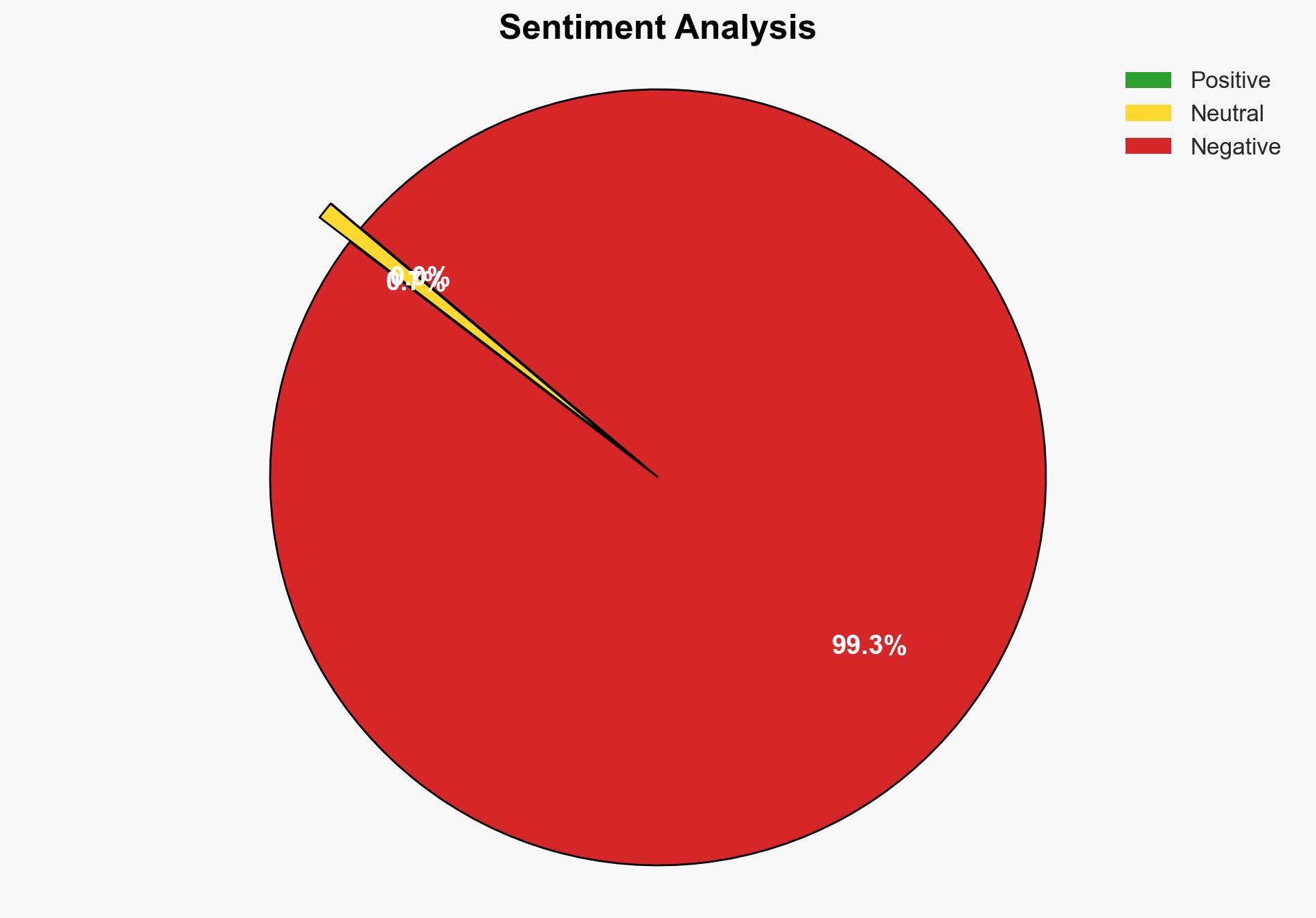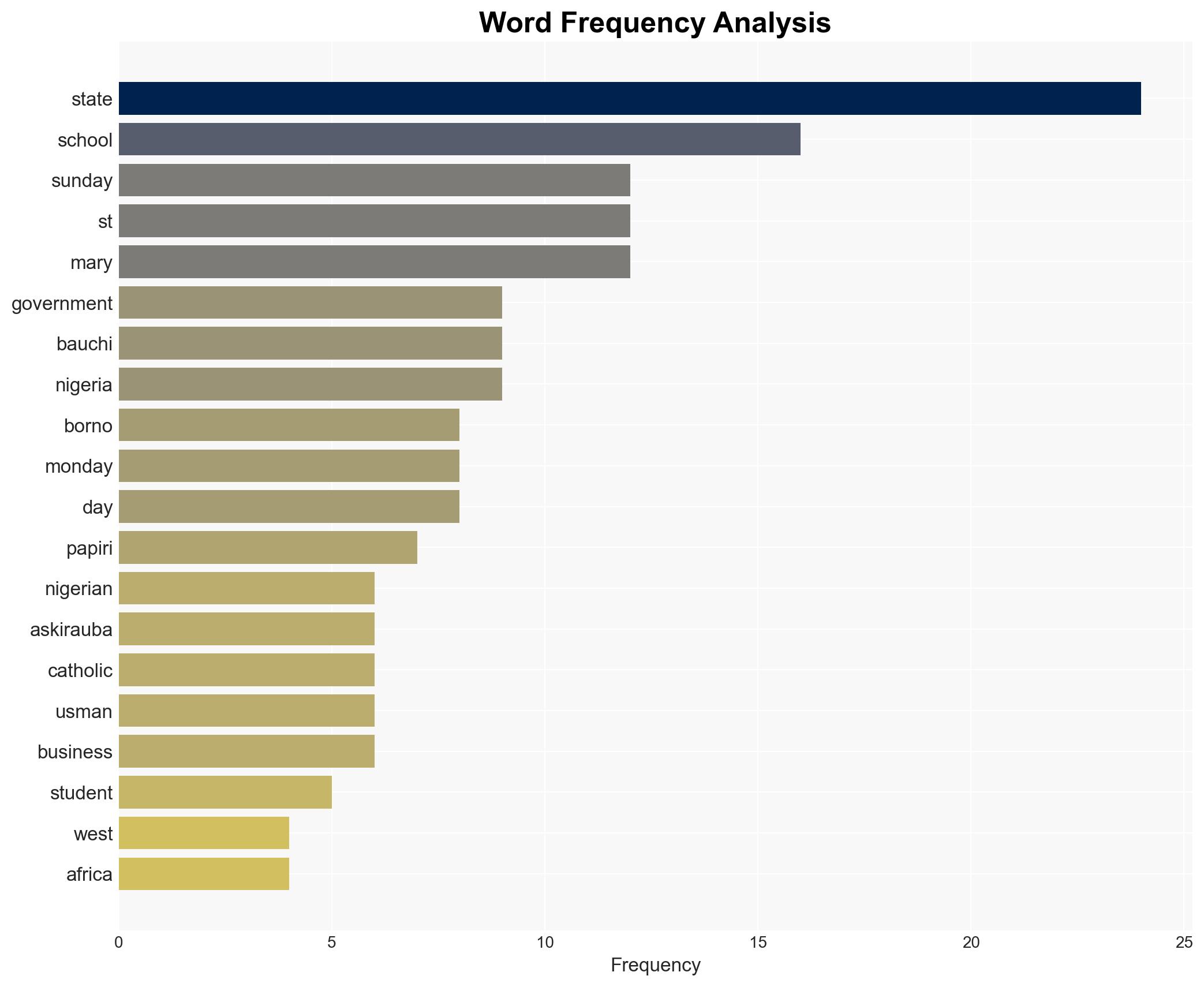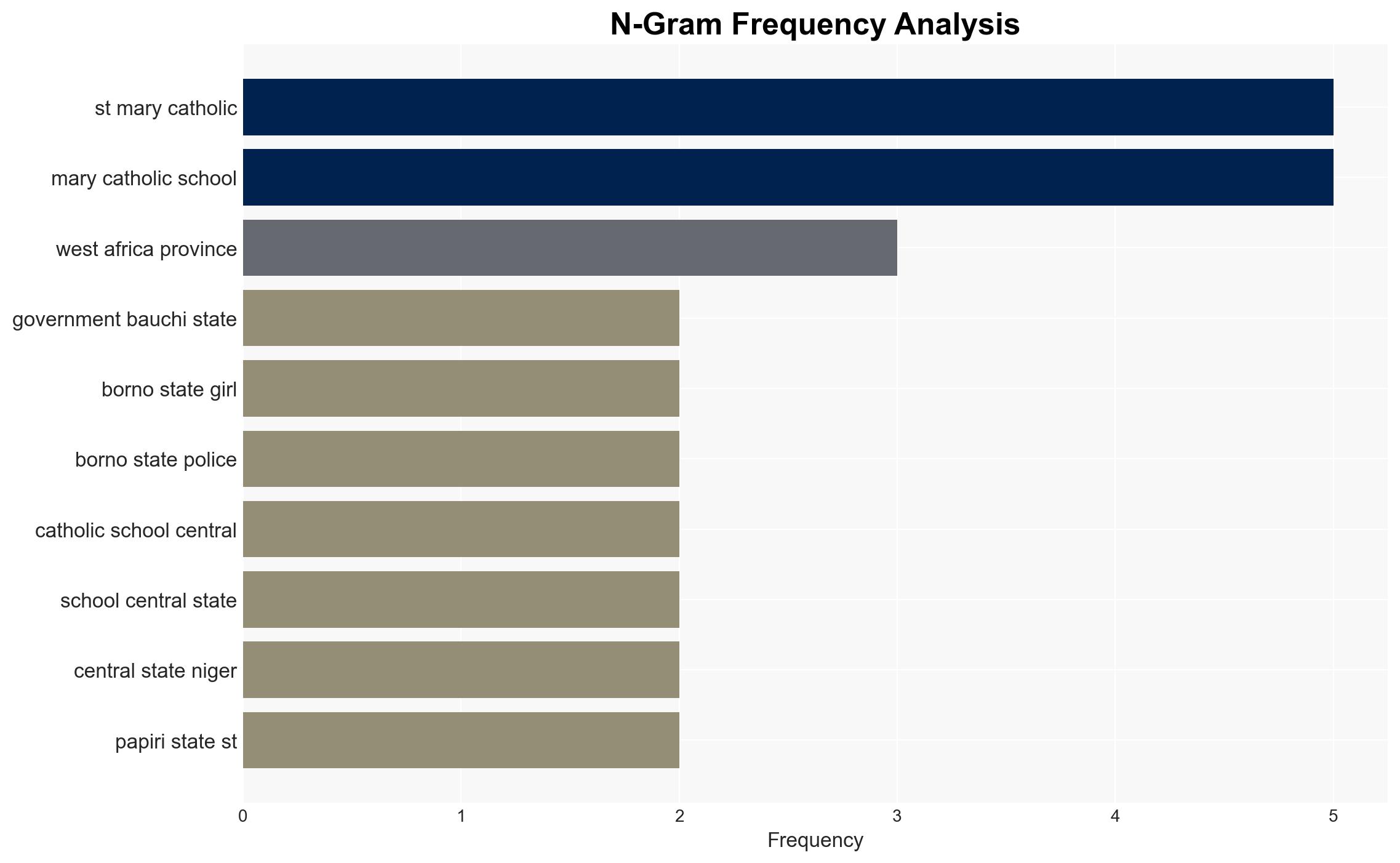Nigeria Shuts Down Schools to Prevent Jihadi Kidnappings
Published on: 2025-11-25
AI-powered OSINT brief from verified open sources. Automated NLP signal extraction with human verification. See our Methodology and Why WorldWideWatchers.
Intelligence Report:
1. BLUF (Bottom Line Up Front)
The most supported hypothesis is that the closure of schools in Nigeria is a reactive measure to an escalating threat from jihadist groups like Boko Haram and ISWAP, which are increasingly targeting educational institutions for kidnappings. This reflects a significant security challenge that requires both immediate and long-term strategic responses. Confidence Level: Moderate. Recommended actions include enhancing security measures at educational institutions and increasing intelligence operations to preempt and disrupt kidnapping plots.
2. Competing Hypotheses
Hypothesis 1: The Nigerian government’s decision to close schools is a necessary and immediate response to credible threats from jihadist groups targeting educational institutions for kidnappings.
Hypothesis 2: The school closures are an overreaction to isolated incidents, driven by political pressure and a desire to appear proactive, rather than based on a comprehensive assessment of the threat landscape.
Hypothesis 1 is more likely due to the pattern of recent attacks and kidnappings, which suggest a coordinated effort by jihadist groups to destabilize regions through targeting vulnerable populations, such as students. The frequency and geographic spread of incidents support the notion of a credible, widespread threat.
3. Key Assumptions and Red Flags
Assumptions: The threat from jihadist groups is significant enough to warrant school closures. The Nigerian government has reliable intelligence indicating imminent attacks.
Red Flags: The possibility of political motivations influencing security decisions. Lack of transparency in threat assessments could indicate either an overestimation or underestimation of the threat level.
Deception Indicators: Potential misinformation from jihadist groups to create panic and disrupt government operations.
4. Implications and Strategic Risks
The closure of schools could have cascading effects, including increased public fear and loss of confidence in government capabilities. Economically, prolonged closures could disrupt education, leading to long-term developmental setbacks. Politically, failure to address the security threats could weaken the government’s standing and embolden jihadist groups. There is also a risk of these groups exploiting the situation to recruit more followers by portraying the government as ineffective.
5. Recommendations and Outlook
- Actionable Steps: Increase security presence and surveillance at educational institutions. Enhance intelligence-sharing mechanisms with local and international partners. Implement community engagement programs to build resilience and gather grassroots intelligence.
- Best Scenario: Successful disruption of jihadist plots leads to the safe reopening of schools and restoration of public confidence.
- Worst Scenario: Continued kidnappings and attacks lead to prolonged school closures and significant socio-economic disruption.
- Most-likely Scenario: Sporadic incidents continue, prompting periodic closures and heightened security measures, with gradual improvements in intelligence and response capabilities.
6. Key Individuals and Entities
Ahmed Usman: Special Adviser to the Governor of Sokoto State, publicly opposing school shutdowns.
Boko Haram and ISWAP: Primary jihadist groups involved in recent kidnappings and attacks.
7. Thematic Tags
Structured Analytic Techniques Applied
- Cognitive Bias Stress Test: Expose and correct potential biases in assessments through red-teaming and structured challenge.
- Bayesian Scenario Modeling: Use probabilistic forecasting for conflict trajectories or escalation likelihood.
- Network Influence Mapping: Map relationships between state and non-state actors for impact estimation.
Explore more:
National Security Threats Briefs ·
Daily Summary ·
Support us





